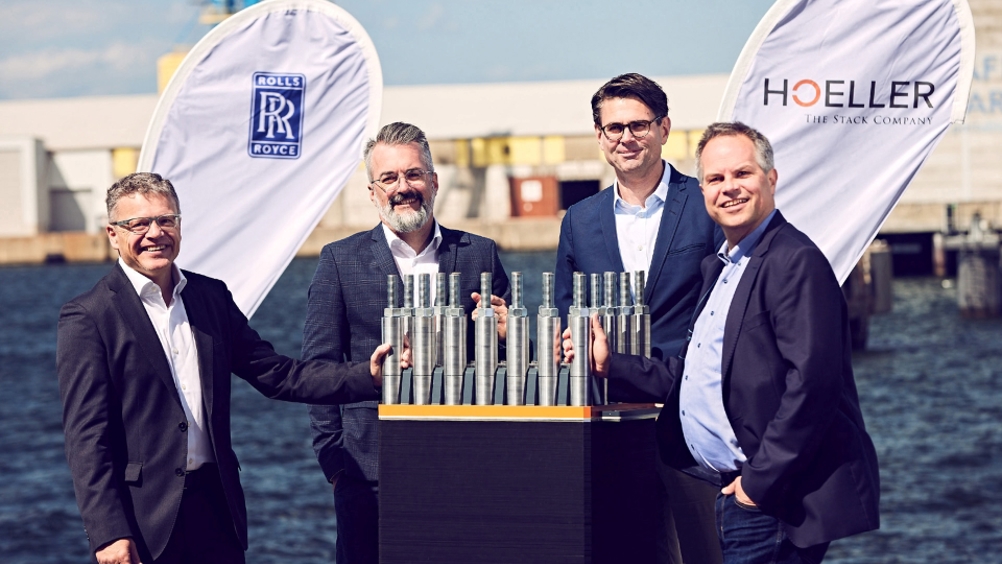Rolls-Royce enters hydrogen production market
Rolls-Royce is entering the hydrogen production market by acquiring a majority stake in Hoeller Electrolyzer, an electrolysis stack specialist based in Germany.

Hoeller Electrolyzer is an early-stage technology company developing polymer electrolyte membrane (PEM) stacks, under the brand name Prometheus, for the cost-effective production of hydrogen. The demand for ‘green’ hydrogen is expected to rise, making high-performance electrolysers a key component of any hydrogen system.
Hoeller Electrolyzer’s technology will form the basis of a new range of mtu electrolyzer products from Rolls-Royce’s Power Systems division.
In a statement, Dr Otto Preiss, COO and Chief Technology Officer, Rolls-Royce Power Systems, said: “By developing our own mtu electrolysers and by taking a majority [54 per cent] stake in Hoeller Electrolyzers, we are methodically growing our hydrogen portfolio and securing access to this fascinating technology, which is not a pipe dream but has great market potential.
“This will enable us to supply complete hydrogen solutions and make a significant contribution to protecting the climate. Our complete hydrogen solutions will enable customers to store renewably produced energy in the form of hydrogen for use as and when required, or for further processing or onward sale.”
Register now to continue reading
Thanks for visiting The Engineer. You’ve now reached your monthly limit of news stories. Register for free to unlock unlimited access to all of our news coverage, as well as premium content including opinion, in-depth features and special reports.
Benefits of registering
-
In-depth insights and coverage of key emerging trends
-
Unrestricted access to special reports throughout the year
-
Daily technology news delivered straight to your inbox










Water Sector Talent Exodus Could Cripple The Sector
Maybe if things are essential for the running of a country and we want to pay a fair price we should be running these utilities on a not for profit...